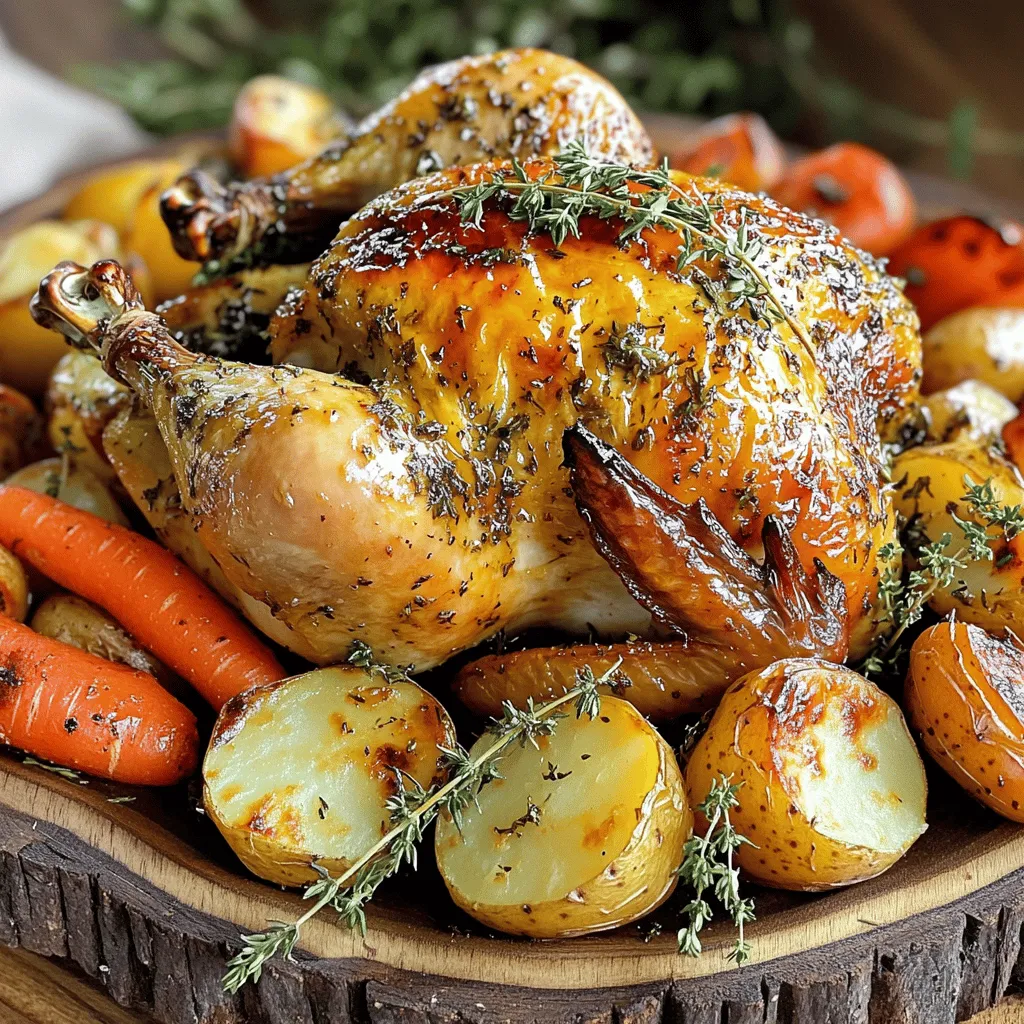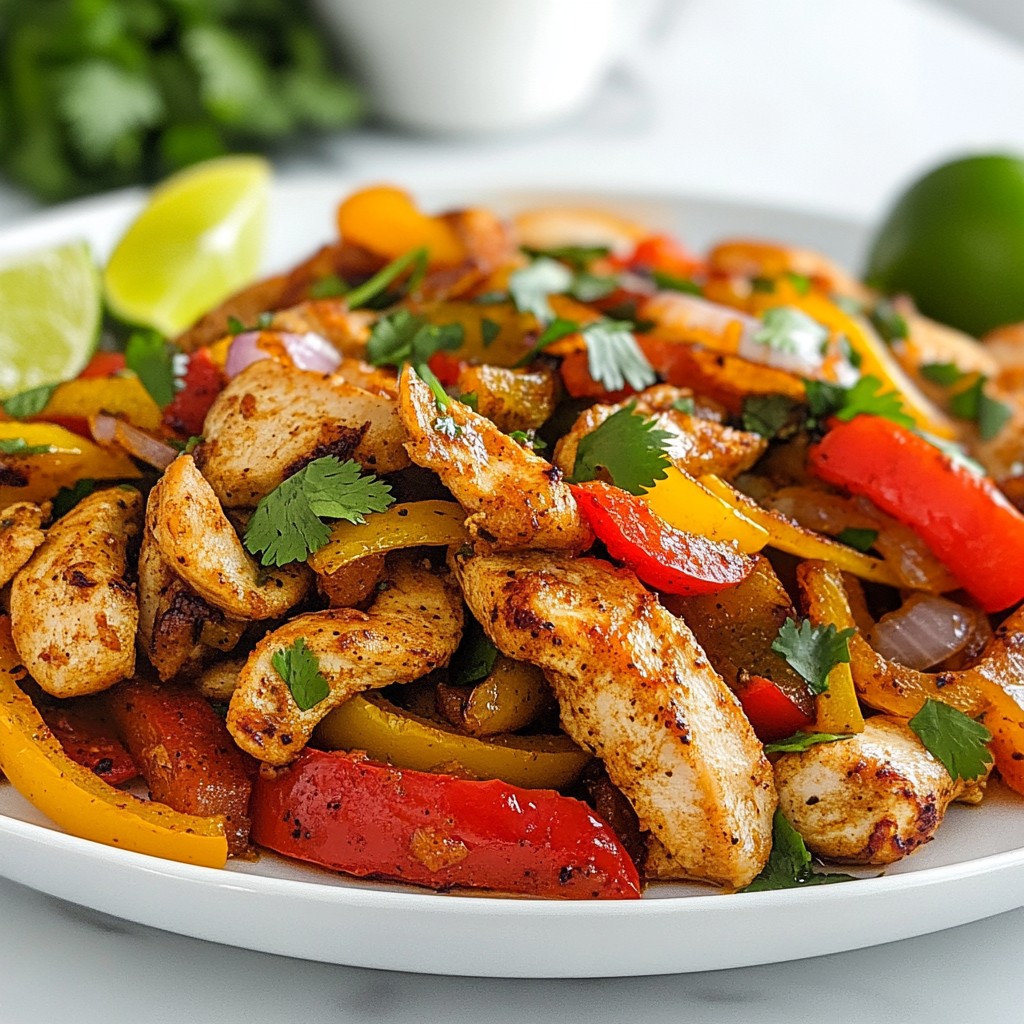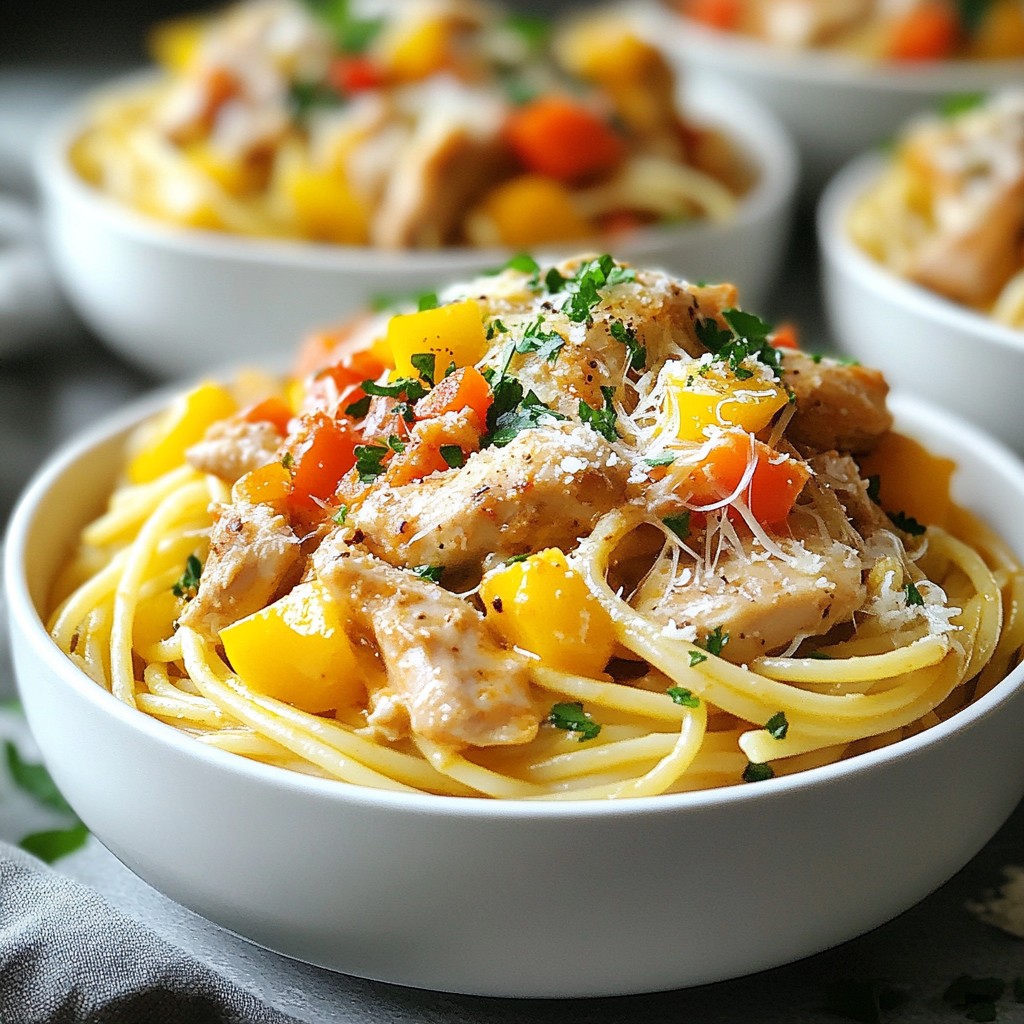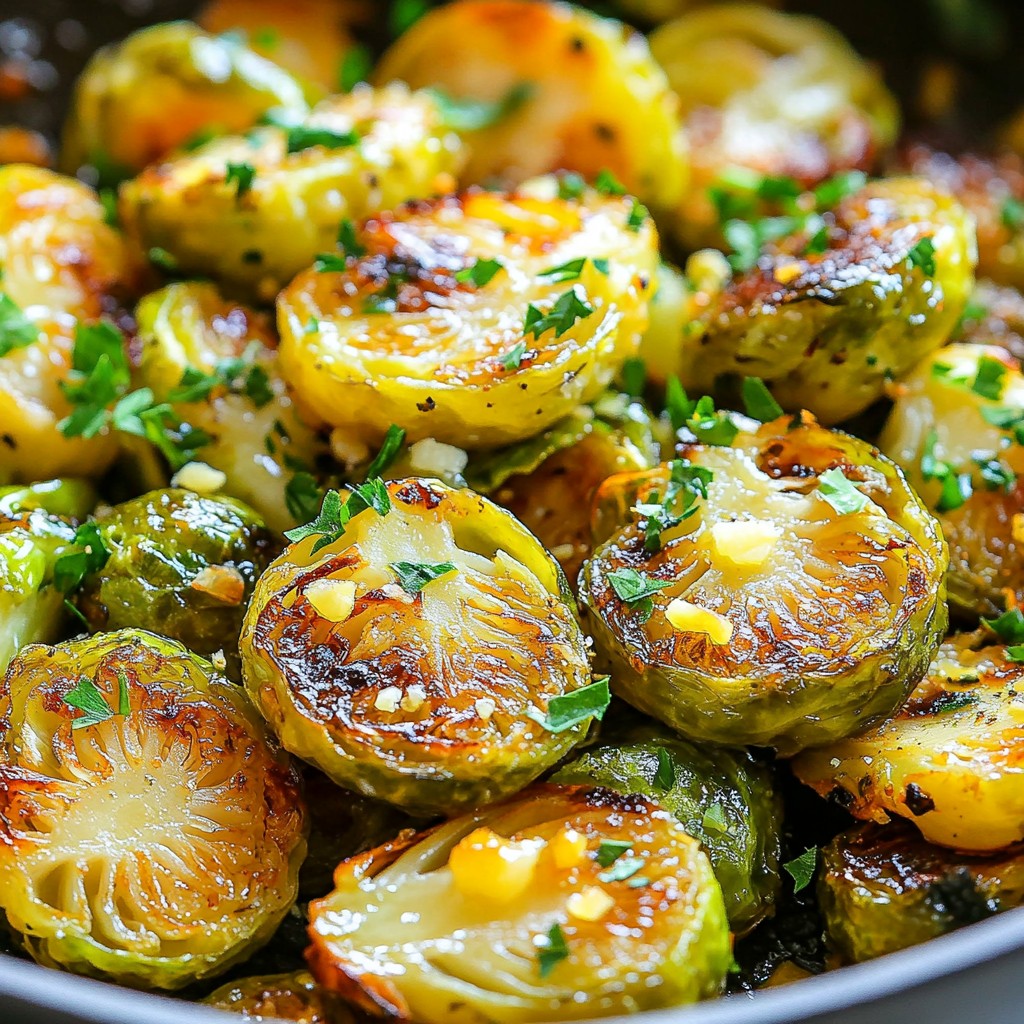If you crave a simple, tasty meal, look no further! Savory herb roasted chicken is a delicious dish that anyone can make. With just a few ingredients and easy steps, you’ll impress your family and friends. I’ll walk you through everything from preparation to cooking. Let’s get started on this flavorful journey that will have everyone asking for seconds!
Ingredients
List of Required Ingredients
To make Savory Herb Roasted Chicken, gather these simple ingredients:
– 1 whole chicken (approximately 4-5 lbs)
– 2 tablespoons extra-virgin olive oil
– 1 tablespoon Dijon mustard
– Zest and juice of 1 lemon
– 4 cloves garlic, finely minced
– 2 teaspoons fresh rosemary, finely chopped
– 2 teaspoons fresh thyme, finely chopped
– 2 teaspoons fresh sage, finely chopped
– Salt and freshly ground pepper, to taste
– 1 large onion, cut into quarters
– 2 medium carrots, roughly chopped
– 2 medium potatoes, peeled and cubed
– A handful of fresh herbs for garnish (optional)
Suggested Kitchen Tools
You will need a few key tools to make this dish:
– A roasting pan
– A medium mixing bowl
– A sharp knife for carving
– A cutting board
– Paper towels for drying the chicken
Alternatives for Common Ingredients
If you don’t have some ingredients, here are some easy swaps:
– Use chicken thighs or breasts instead of a whole chicken.
– Swap Dijon mustard for whole grain mustard for a twist.
– If you lack fresh herbs, dried herbs work, but use less.
– For added flavor, consider using garlic powder instead of fresh garlic.
Step-by-Step Instructions
Preparation Steps
First, preheat your oven to 425°F (220°C). A hot oven helps the chicken skin turn crispy. Next, mix the marinade in a bowl. Combine the olive oil, Dijon mustard, lemon zest, lemon juice, garlic, rosemary, thyme, sage, salt, and pepper. Stir until everything blends well.
Now, take your whole chicken and pat it dry with paper towels. This step is key for crispy skin. Place the chicken in a large roasting pan. Carefully separate the skin on the breast and thighs with your fingers. Be gentle to avoid tearing. Rub half of the marinade under the skin. Then, coat the outside of the chicken with the rest of the marinade.
Stuff the cavity with onion, carrots, and potatoes. This mix not only adds flavor but also makes for tasty sides.
Cooking Process
Put the roasting pan in your hot oven. Roast the chicken for about 1 hour and 15 minutes. The chicken is done when it reaches an internal temperature of 165°F (75°C). Use a meat thermometer to check the temperature in the thickest part of the thigh.
Basting and Checking Doneness
Halfway through roasting, open the oven and baste the chicken with the juices in the pan. This step keeps the meat moist and packed with flavor. Keep an eye on the time, and check the chicken’s temperature as it cooks.
When the chicken is ready, take it out and let it rest for 10 to 15 minutes. This time allows the juices to settle, making each bite juicy and tender. Then, carve the chicken, serve it with the roasted veggies, and drizzle the pan juices on top for extra flavor.
Tips & Tricks
How to Achieve Crispy Skin
To get that golden, crispy skin on your chicken, start with a dry bird. Pat it down well with paper towels. This step removes excess moisture. Next, apply olive oil evenly over the skin. The oil helps the skin crisp up and adds flavor. Roasting at a high temperature, like 425°F, cooks the chicken quickly. This method creates a crunchy layer outside while keeping the meat juicy inside. Basting halfway through adds moisture but be careful not to overdo it.
Best Herbs for Flavor Enhancement
Using fresh herbs can elevate your chicken dish. Rosemary, thyme, and sage are my favorites. They add depth and earthiness to your meal. Mix them with olive oil and lemon juice for a bright marinade. You can also try parsley or oregano for a different twist. Don’t forget to use herbs both under the skin and on the outside. This ensures every bite bursts with flavor. Experiment with herbs based on what you like best!
Common Mistakes to Avoid
Many cooks face simple mistakes when roasting chicken. One common error is not letting the chicken rest after cooking. This step allows the juices to settle, making the meat tender and flavorful. Another mistake is overcrowding the pan with veggies. Leave enough space for heat to circulate. Lastly, don’t skip checking the internal temperature. Always aim for 165°F to ensure it’s safe to eat. Keep these tips in mind, and your roasted chicken will impress every time.
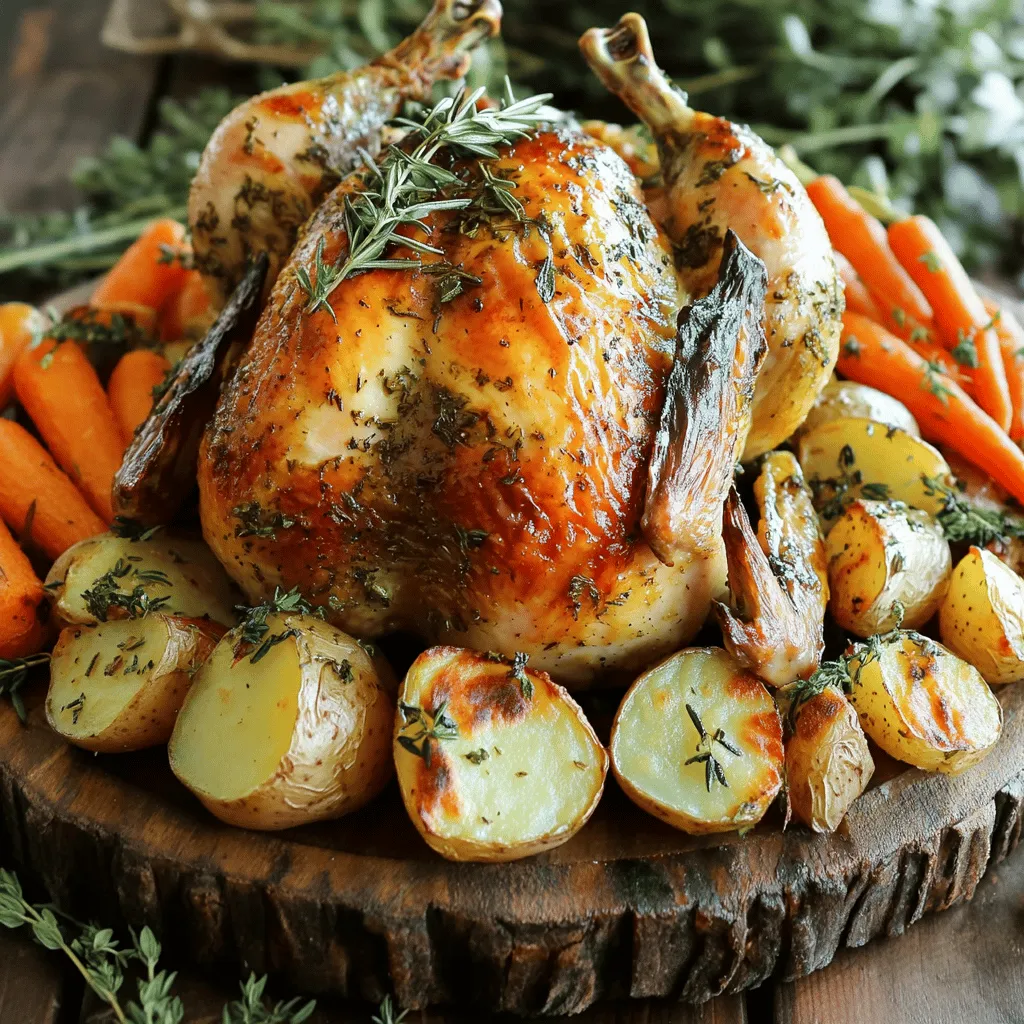
Variations
Herb and Spice Alternatives
If you want to change the taste, you can swap the herbs. Use basil, oregano, or dill instead of rosemary, thyme, or sage. Each herb brings its own flavor. For a spicy kick, add paprika or cayenne pepper. You can also try fresh herbs like parsley or cilantro. Don’t be afraid to mix and match. Your chicken will still taste great with these options.
Cooking Methods: Roasting vs. Grilling
Roasting and grilling both work well for chicken. Roasting gives you a crispy skin and juicy meat. It’s easy and requires less attention. Preheat your oven to 425°F for the best results. Grilling, on the other hand, adds a smoky flavor. It requires more effort, as you need to check the heat and turn the chicken. Use a grill thermometer to ensure it cooks evenly. Both methods can deliver a delicious meal, so choose your favorite.
Side Dish Pairings
Pair your savory herb roasted chicken with tasty sides. Roasted vegetables like carrots, potatoes, and onions work well. You can also serve it with a fresh salad or creamy mashed potatoes. Rice or quinoa can be a nice option too. Each side enhances the chicken’s flavor. Feel free to get creative and mix in your favorite sides to make a complete meal.
Storage Info
How to Store Leftovers
After enjoying your savory herb roasted chicken, store any leftovers promptly. Place the chicken in an airtight container. Add the roasted vegetables too, if desired. Make sure to refrigerate within two hours of cooking. This keeps the chicken fresh and safe to eat later. You can enjoy the leftovers for up to four days in the fridge. If you want to keep it longer, consider freezing.
Reheating Instructions
Reheating your chicken is easy. Preheat your oven to 350°F (175°C). Place the chicken in a baking dish and cover it with foil. This helps keep the chicken moist. Heat for about 20-25 minutes or until warm. You can also use a microwave. Just cover the chicken and heat in short bursts, checking often. Ensure the chicken is heated all the way through.
Freezing Tips for Chicken and Vegetables
Freezing is a great option for longer storage. First, let the chicken cool completely. Then, cut it into pieces. Place the pieces in freezer bags, removing as much air as possible. You can also freeze the vegetables in separate bags. They will stay fresh for about three months. When ready to eat, thaw overnight in the fridge before reheating. This method keeps the flavors intact and saves you time later.Enjoy your cooking!
FAQs
What is the best temperature for roasting chicken?
The best temperature for roasting chicken is 425°F (220°C). This high heat helps the skin become crispy. It also cooks the chicken evenly and keeps it juicy. Roasting at this temperature usually takes about 1 hour and 15 minutes for a whole chicken. Always check the internal temperature with a meat thermometer. The chicken is safe to eat when it reaches 165°F (75°C).
How long to let the chicken rest after cooking?
You should let the chicken rest for 10 to 15 minutes after cooking. This resting time allows the juices to settle. If you cut it too soon, the juices will run out. Letting the chicken rest makes each bite more tender and flavorful. Cover it lightly with foil to keep it warm during this time.
Can I use a different type of chicken for this recipe?
Yes, you can use a different type of chicken. You may use chicken pieces, like thighs or breasts. Adjust the cooking time based on the size of the pieces. Smaller pieces cook faster than a whole chicken. Always check for doneness with a meat thermometer.
In this blog post, we covered the ingredients and tools for cooking chicken. I shared step-by-step instructions, tips for crispy skin, and tasty variations. You learned how to store leftovers and answered common questions about cooking chicken. Remember, every detail matters in cooking. Embrace these tips for better meals. Enjoy the process and have fun in the kitchen!
